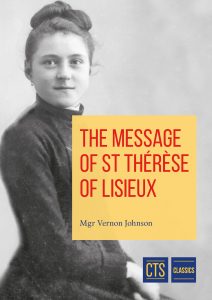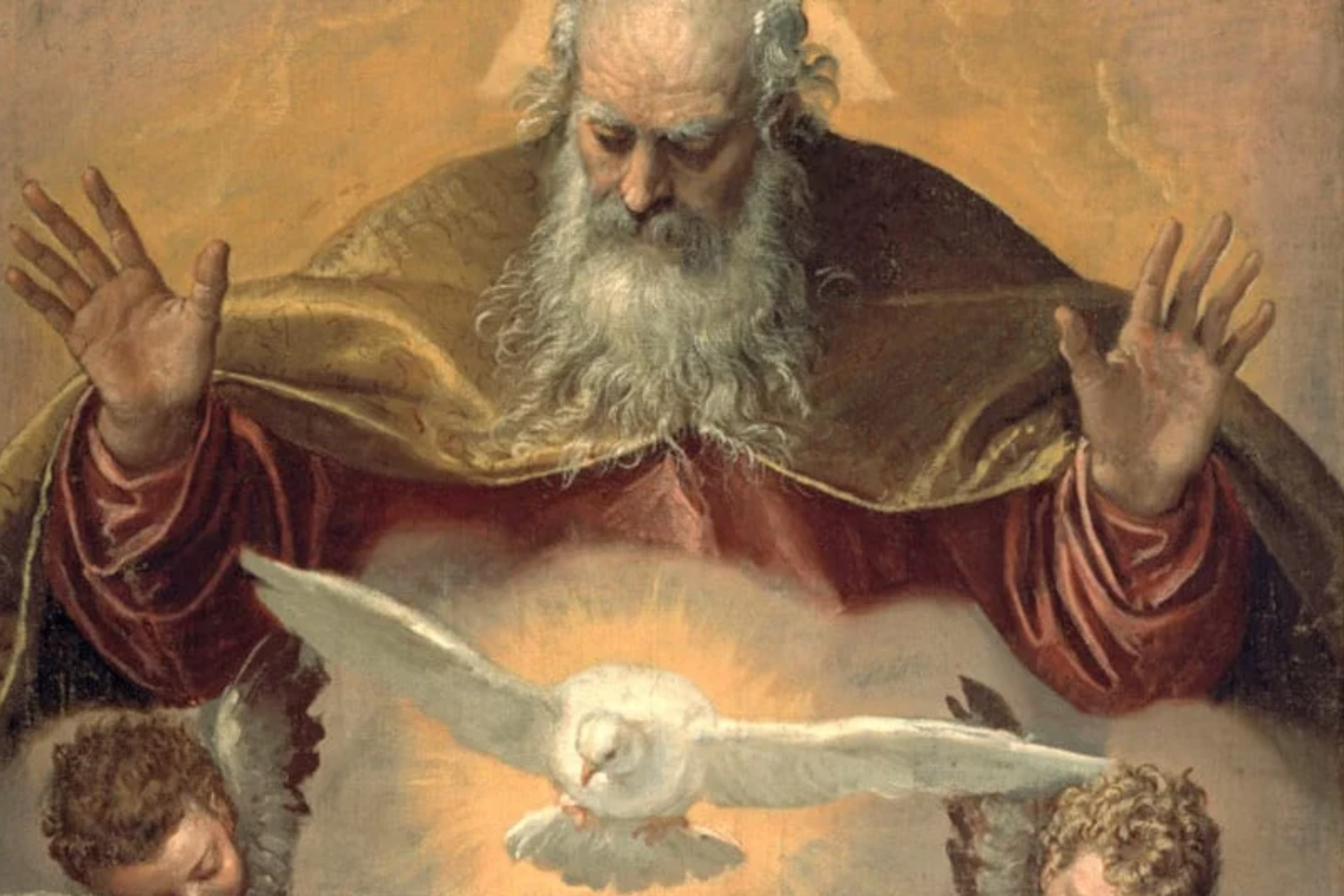Towards the end of her last illness, St Thérèse of Lisieux said to her sister, Mother Agnes of Jesus: ‘I feel that my Mission is soon to begin, my Mission to teach souls my little way’. Her sister asked her: ‘What is the little way that you would teach to souls?’ ‘It is The Way of Spiritual Childhood, the way of trust and absolute self-surrender’.
The Little Way of Spiritual Childhood is all based on the heavenly Father’s love. The little soul, created purely for the Father’s love, moves among the path of spiritual childhood in complete dependence upon His goodness and His power. Now what response can the little soul make to that love? How can it co-operate with the heavenly Father’s plan of love? In the natural sphere, what is the activity of the little child? Watch any little one with it’s mother. How does it shows its love? By little things – just anything that comes across its path in its little world, a flower, a picture, or a toy – it takes it
straight to its mother for her to see; something so small that it has no value except insofar as it expresses the love of the little one, which is so precious in its mother’s eyes.
A little child relates everything to its mother in little acts of love. And, all the time, it can only do it because it’s mother is there, watching it, supporting it with her care and ready to receive its offering. Without her its love would have no object; all would be chaos and confusion. In the Little Way of Spiritual Childhood it is precisely the same. The little soul can only co-operate with the Father’s love, can only express its own love, by little things, by relating everything to the heavenly Father as an expression of its love. In other words, by doing everything to please the heavenly Father. St Thérèse tells us so herself. ‘I have always been very little and I have never been able to do anything but very little things. How shall I show my love since love is proved by works? Well, the little child will strew flowers… No other means have I of proving my love than to strew flowers – that is, to let no little sacrifice escape me, not a look, not a word, to make use of the very least actions and do them all for love.’
She took every little incident, every joy, every disappointment and misunderstanding, everything that came her way, some little word or action, something easy, something difficult, she grasped each, as a little child plucks a flower, and laid it at our Lord’s feet as an expression of her love for Him. ‘I work for His pleasure alone’.
Here then is the way by which the little soul shows its love to the heavenly Father. It is so simple, so all-embracing. The greater part of our daily life is made up of little things, very ordinary things indeed; and the beauty of the Little Way is that it gathers in all these apparently unimportant things and fills them with a supernatural glory. The little soul, realising that it has been created by the heavenly Father solely to love Him and to be loved by Him, knows that all the circumstances of life in which it finds itself placed are therefore the setting ordained by the heavenly Father whereby the little soul is to express its love. This entirely puts an end to the temptation to divide our life into spiritual and secular, the temptation to think of God only when we are upon our knees and to forget Him in our work. Everything is an instrument to express our love; every humiliation taken patiently, every difficulty faced calmly, every sorrow borne courageously, every disappointment met bravely, every weary detail taken cheerily, every little duty in the home or business done to the best of our ability, all of these are offerings, little flowers by which to express our love to our heavenly Father.
Writing to her sister, the Saint says: ‘It is the little things done for love which charm the heart of the good God’. So, here and now on earth, in little, unimportant things, begins that very life of Union, through supernatural love, which is to be our glory in heaven. This is precisely what theology teaches us, namely, that all creatures around us, all we meet in life, are to be used as means to glorify God through love; that all our life is just a means to our last end, love; and, apart from that last end, it has no meaning. And, just as the little child can only offer its little tokens of love to its mother because she is there, enveloping the little one with her love and protection, so the soul, though free, can only offer its acts of love through the power of God’s grace.
St Thérèse was never tired of saying: ‘I have never been able to do anything by myself’. The little soul makes these acts of love just as much in the grey days as in the days when all is bright and sunny. ‘In times of dryness, when I am incapable of praying and practising virtue, I seek little opportunities, mere trifles, to give pleasure to Jesus; for instance, a smile, a pleasant word when inclined to show weariness. If I have no opportunities I at least tell Him again and again that I love Him. That is not difficult, and it keeps alight the fire of love in my heart.’ Is there anybody who cannot do this, with a good will and with the help of grace? The Little Way once more is so safe, for it does not ask the little soul to do any great work. For the heavenly Father does not look at the greatness of the work, but at the love which lies behind it. ‘Our Lord does not look so much at the greatness of our actions, nor even at their difficulty, as at the love with which we do them. What then have we to fear?’
Again, the little soul treads this Way with perfect confidence in its effort to show its love through little things. It knows it will often fail and make mistakes. But, in the natural life, if a little one brings a picture to its mother upside down, the mother does not punish the little one. She does not even trouble to turn the picture the right way up. She is not looking at the picture but at the love of the little one behind it. And the little soul knows that it is the same with the heavenly Father’s love, and so all temptations to scruples disappear.
 This blog is extracted from our book The Message of St Therese of Lisieux. What is the message of St Thérèse of Lisieux and what does it for the Church today? In this renowned classic, discover the Little Way of St Thérèse and understand how it powerfully reveals the relevance of the Gospel for everyday living.
This blog is extracted from our book The Message of St Therese of Lisieux. What is the message of St Thérèse of Lisieux and what does it for the Church today? In this renowned classic, discover the Little Way of St Thérèse and understand how it powerfully reveals the relevance of the Gospel for everyday living.
Find out more about Therese’s Little Way by ordering your copy of The Message of St Therese of Lisieux.
